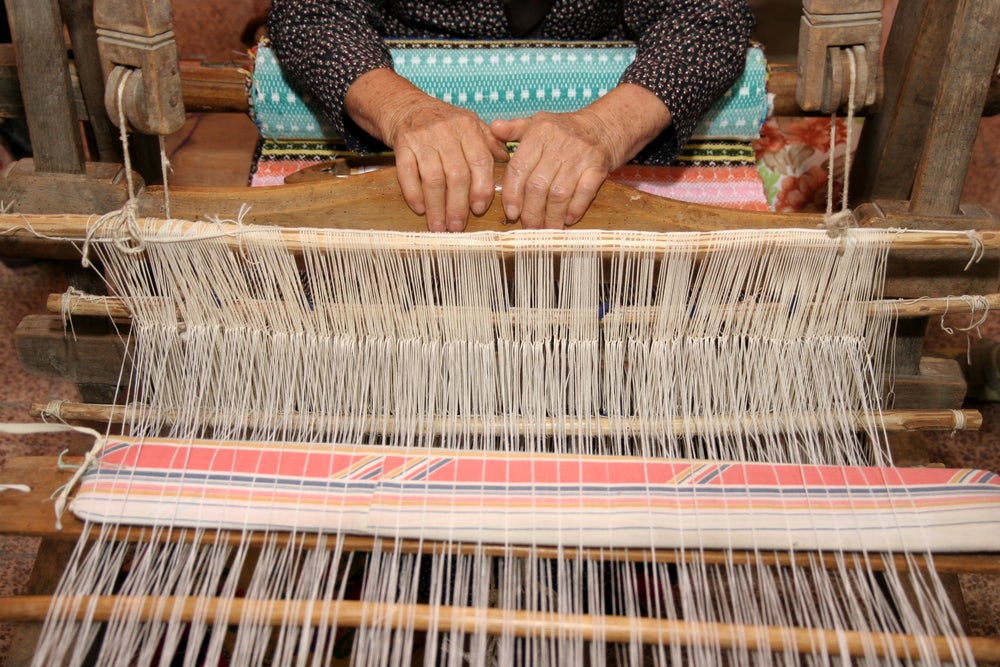
The hold that ethical sourcing and sustainability has over the US fashion and apparel industries is being cemented more by by changing investor requirements than by consumers, a major US fashion industry conference has heard.
“You don’t want to rub it in the face of your consumers that they need to buy a more ethical pair of jeans,” Zeke Hart, director of sustainability services for accounting firm PwC, told the 29th Annual Apparel Importers Trade and Transportation Conference in New York City last week.
Instead, American clothing importers are cleaning up their sourcing acts largely in response to investor choices, according to the event, organised by the American Import Shippers Association (AISA) and the United States Fashion Industry Association (USFIA).
“Only 10% to 15% of consumers will take sustainability strongly into account, so it doesn’t make sense to communicate to such a small number of consumers,” he says. “They want to buy more sustainable products, but they’re just not going to sacrifice price, fashion and quality.”
Hart also notes the challenges companies face in maximising the public relations benefits to be obtained by investing in social and environmental sustainability practices.
How well do you really know your competitors?
Access the most comprehensive Company Profiles on the market, powered by GlobalData. Save hours of research. Gain competitive edge.

Thank you!
Your download email will arrive shortly
Not ready to buy yet? Download a free sample
We are confident about the unique quality of our Company Profiles. However, we want you to make the most beneficial decision for your business, so we offer a free sample that you can download by submitting the below form
By GlobalDataSee Also:
Generational spending shifts
At the same time, he says “the reasonable investor is changing.” With baby boomers ageing and in the process of transferring some US$30 trillion in wealth to millennials, investors are aware that spending decisions are also undergoing the same generational shift.
In the process, he says, more of this money – and the investment decisions that go along with it – is being handled by mutual funds and other institutional investors who are demanding more ethical narratives from brands to supplement the dollars-and-cents breakdowns already supplied by official corporate communications.
“Some 85% of institutional investors say that non-financial information is critical to their buy decisions,” he says. “Large institutional investors are now directly engaging on non-financial information to form their long-term outlooks.”
And this includes an end to past perceptions that “increased sustainability actually means lower performance” as price and production pressures impact company bottom lines.
This assumption, at least on the part of institutional investors, has changed significantly over the past few years, he says, as evidenced by a 2015 update in which Morgan Stanley raised its price targets on three apparel companies based on their sustainability strategies.
Morgan Stanley analyst Jay Sole, writing in August 2015, flagged NIKE, Hanesbrands and VF Corp as the “top companies among apparel and footwear names when it comes to managing environmental, social and governance (ESG) issues.”
The immediate impact of this announcement – and others like it – was to raise the value of these companies. Shares of Nike, which had suffered from earlier adverse publicity due to sweatshop reports in the 1990s and which had been quoted at around US$50 at the time (and which prompted some initial company reforms to boost sustainable practice), rose to about US$65 as of December 2015 (they are currently fetching around US$58).
With investors and analysts anticipating shifts in generational spending, such decisions may become more common in future.
“Individuals are becoming more interested in ethical sourcing and sustainability and are interested in paying more for products that come from companies that are more responsible,” says Hart. “Unless your company is addicted to older consumers, you want to pay attention.”
Automating opportunities
On the social side of the equation, rather than marginally raising wages for their large labour contingents, many companies are automating the problem out of existence.
John Cheh, the CEO of Hong Kong-based shirt-maker Esquel Group, touted his company’s Guilan manufacturing facility, in southern China, both for its operational efficiencies and for the elimination of manually intensive operating conditions.
“Social responsibility and a fair wage are a difficult sell when all you want is the cheapest labour costs where people are poor,” he says. But, he says, the concepts of “lean manufacturing” and “operational efficiency” can increasingly be solved by automation rather than wage cost reduction. “At our zero-emissions sustainable garment factory in Guilan, they’re not just workers, they’re technologists,” he says of his employees.
Sourcing decisions
According to a study released by the USFIA in July 2017, ethical sourcing and sustainability are increasingly being given more weight in sourcing decisions. The survey polled 34 executives between April and May of 2017 and found that for 87.5% of them these issues are more important than they were five years ago.
All of the companies are engaged in actively auditing their suppliers. These audits include assessments of how suppliers treat their workers and their fire safety and building safety. The bulk of these companies – 93% – use third-party certifications to complete the audits and employ a mixture of announced and unannounced inspections.
Also, as many as 90% of respondents say their companies map their supply chains by keeping records of the names, locations and functions of suppliers. More than half track not only ‘tier 1’ suppliers (suppliers with whom they interact directly), but also ‘tier 2′ suppliers, or suppliers’ suppliers.
The report quotes USFIA chairman Michael Singer of Macy’s Merchandising Group as saying that “environmental, social and governance issues are increasingly important for companies.”
“This is being driven by our customers, federal and state regulations, NGOs [non-governmental organisations], shareholders and investor groups,” he says. “We all need to do more to understand our supply chains and take steps to have a positive impact in the factories and communities that produce our merchandise.”
The trick for apparel companies is to translate the sustainability statements issued to investors in corporate announcements into brand-centric news that can also generate positive PR along the way.
It is easy enough to boost sustainability ratings once your company goes after what Cheh calls “the low-hanging fruit,” but beyond that, “companies have to innovate and differentiate, transform and lead,” says Singer.
“If you have a sustainability strategy that has nothing to do with your brand, this becomes very difficult.”
Speakers at the event also warned that prospects for trade deals that have underpinned growth in American clothing and textile imports and exports appear increasingly precarious as the Trump administration passes the 300-day mark. Click on the following link to read more:








